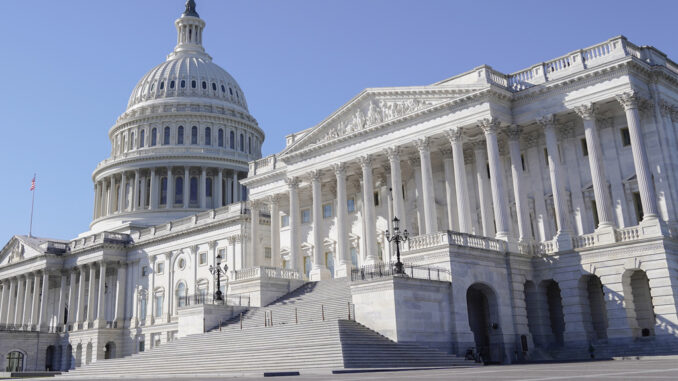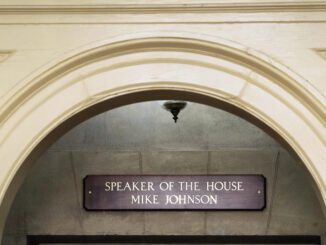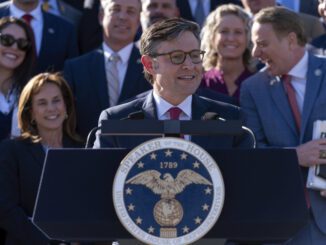
In our book, “Fixing Congress: Restoring Power to the People,” Mike Johnson (the other one, not the speaker) and I review how the negative impact of large population congressional districts, historic changes to the role of U.S. senators, and the evolution of campaign finance have reduced the influence of citizens back home.
Consider how those changes produced adverse consequences for your taxes, federal spending and public debt.
One hundred eleven years ago, individuals with noble intentions made decisions that have negatively impacted our democratic/republic form of governance:
1. They froze the size of the U.S. House at 435 members;
2. They changed the US Senate from its role as the voice of the republic into a duplicative democratic body representing more residents with longer terms than the House and;
3. They invented the federal income tax.
Before the 1910 census could take effect on U.S. House representation, the number of representatives in the House was adjusted following each census. Members of Congress went from originally representing an average of around 30,000 folks to today’s single-member district with a colossal 762,000 residents.
Large congressional districts spawned unintended consequences, making communications more complex and campaigns much more expensive. Today, a congressional campaign’s goal of communicating with those 762,000 residents routinely costs over a million dollars.
In our book, we offer options to large congressional districts and campaign finance challenges.
We do the same thing as we discuss another well-intentioned idea to give residents direct influence over U.S. senators. The 17th Amendment ended state governments naming U.S. senators, as had been done since the country’s founding. The shift to the direct election of senators sounded great, but it undermined Congress.
It was not anticipated that senators would cease to be voices in the republic. Instead, senators shifted their focus to electoral politics. The unintended consequence was that no one was fighting for the long-term interests of residents, and senators began fighting for campaign dollars from their residents and out-of-state sources legally allowed to be involved. Not surprisingly, to respond to constituents, senators also became advocates for more regulation and spending by the federal government.
Many issues belong at the national level; many others don’t. But senators and representatives know that delivering the bacon is a better way to greet constituents than talking about austerity. It is projected that next year the U.S. government’s debt will exceed 106.2% of the nation’s private sector’s annual economic output — which has never happened before. The popular election of senators removed the brake-power on federal spending that once existed.
The Constitution’s 16th Amendment was adopted 111 years ago to meet the country’s growing need for revenue. That first federal income tax only applied to the top 1% of earners, and everyone else was assured they did not need to fear the taxman. Unintentionally, that shift in taxation introduced envy and greed into the tax system. If you were part of the 99% who had less income than the 1 percenters, why oppose shifting that tax burden to the guy behind the tree who must have too much money anyway?
That 1% of income level was not enough to feed a growing government. The rate now includes roughly the top 49% of income earners who pay 98% of all federal income tax collected.
With this broader array of earners now mandated to pay for programs and legislators enticed to keep spending more to reward their constituents, why stop there? Candidates and incumbents make noise about cutting spending and changing the tax load, but how often does that happen when the political rewards encourage more spending and fewer taxes? Would appointed senators see it differently?
Unintended consequences of just these three changes from 111 years ago have created a system that guarantees perpetual growth of the federal government and debt while simultaneously reducing the influence of each resident and removing a vital attribute of a republic where wiser long-term decisions are made that don’t necessarily placate beneficiaries of today’s federal largess.
We do not advocate simply reverting to the conditions of 111 years ago. Everything has changed domestically, internationally, and in terms of communications. We need new approaches built on those realities that also empower women, racial groups, and youth, who are all now encouraged to be engaged in this democratic republic which excluded them from voting 111 years ago.
“Fixing Congress” offers options without recommendations to encourage you to engage in conversations that offer “Uncommon Solutions for Unprecedented Problems.”


